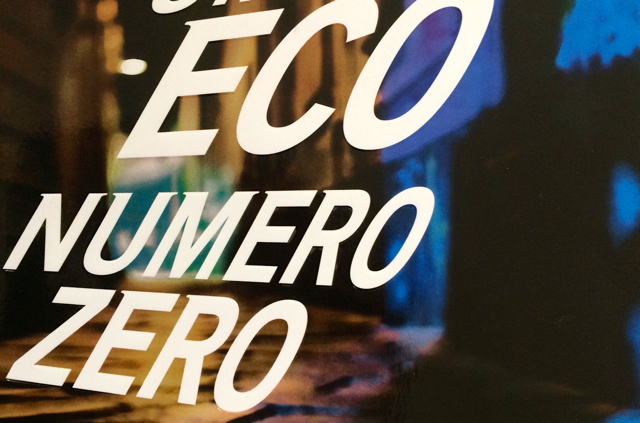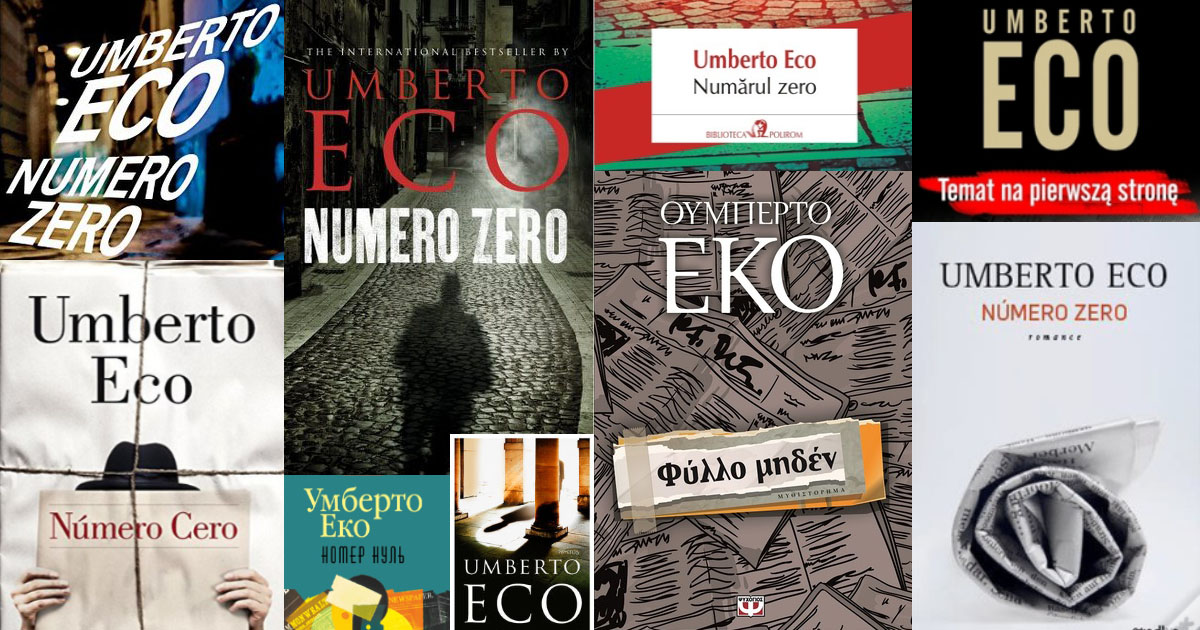

One can make a sound claim that genre-writing is little more than a re-appropriation of existing ideas and tone, but what about re-appropriation in nonfiction, or journalism? Much of journalism sounds the same (facts, naturally, eclipse narrative flair), but Simei believes he can solve this issue by looking toward the future, to tomorrow. But when I tried writing a book of my own, I realized that in describing someone or something, I’d always be making cultural allusions…”

“Writing detective stories for somebody else was easy, all you had to do was imitate the style of Chandler or, at worst, Mickey Spillane. Numero Zero reads at times like an old hard-boiled pulp novel, particularly in the book’s first-person introductory and final chapters where Colonna explicitly discusses noir themes and how they relate to his ghostwriting: This is a thin and clunky premise, but it becomes quickly clear in Numero Zero that Eco is more interested in discussing themes of ethics in journalism and storytelling than he is interested in an air-tight plot.


It’ll be a bombshell and should give me a tidy sum in royalties.” Once Vimercate proves to his corporate rivals that a conspiratorial muckraking newspaper would be a problematic enterprise in the wrong hands, he can use it as leverage in the “so-called inner sanctum of finance and politics.” Colonna’s memoir is a backup plan: “if all else fails,” Simei explains, ” I’ll publish the book. Simei’s intentions with Domani are suspect: Commendator Vimercate, a wealthy, high-powered businessman, has employed him to create twelve “zero” issues of Domani as examples of the newspaper’s potential power. In Umberto Eco’s slight new novel Numero Zero, a struggling writer named Dottor Colonna agrees to ghostwrite a memoir for Simei, the future head of Domani, a yet-to-be-published newspaper.


 0 kommentar(er)
0 kommentar(er)
